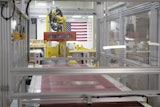Appearances can be deceiving. Millennials represent the fastest-growing segment of luxury goods and services purchasers, according to a recent study by American Express. Yet they are also giving rise to a new lifestyle that can be characterized in two words: frugal and green.
How to explain such a contradiction? It’s actually two sides of the same coin. To splurge on the high-quality items they covet, especially just-off-the-line electronics, Millennials scrimp in other areas. But even as they look for coupons, sales and promotions and stray from well-known brands to keep their cash-strapped budgets in check, they choose “makers and products that are socially responsible…. fair-trade and offer lower carbon footprints,” notes Ana Nennig, EVP of global consulting firm Havas PR.
What’s more, packaging, which has long been part of the green discussion due to concerns about food waste, sustainability and recyclability, is center stage again. But this time consumers are considering it in a more holistic way to embrace and fulfill this young group’s unique views on frugality and social responsibility.
For instance, today’s sophisticated, environmentally conscious shoppers are now paying attention to how much energy, water and effort it takes to grow, manufacture and transport food, and finally understand that packaging plays a key role in protecting it. As a generation raised on a new age version of the three R’s — reduce, reuse and recycle — they know that whether a package is made of renewable materials is just as important as whether it can be recycled, how it is produced and how it fits into their carts, pantries, and cooking and eating habits.
All this makes them more and more attracted to products they can quickly assess as being healthy, eco-friendly, and easy to grab, carry, store and reuse or recycle — all in one obviously sustainable package. Notably, one-third of U.S. consumers buy broth and soup in carton packages, says SymphonyIRI because they perceive products in cartons to be fresher, more natural and better tasting, as well as easier to open, pour and store.
For these reasons, innovative grocery chains where this generation shops, such as Whole Foods and Trader Joe’s, are choosing cartons to package their house brand broths, soups and beans. This carton is made mainly from paper, a renewable resource that fulfills many of the criteria are important to Millennials.
Which begs the obvious question: What is important to Millennial shoppers and how does it impact packaging?
First, it helps to understand their frugal and green lifestyle, driven in part by the fact that many Millennials entered their adult lives during a dire economy. They watched abundance turn to recession, oil and energy prices rise from affordable to sky-high and the availability of the earth’s natural resources go from seemingly unlimited to clearly and rapidly depleting.
Yet their drive to be frugal and green is also driven by their unique place in history as the most multi-cultural and tolerant generation ever, with a strong sense of responsibility to the planet and the human race. Coupled with harsh economic forces they experienced growing up, they have emerged with the new holistic approach to living.
To continue reading the full article, click here to visit our partner publication, Food Manufacturing.























